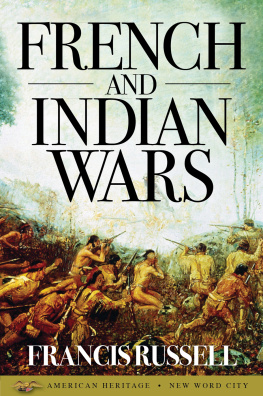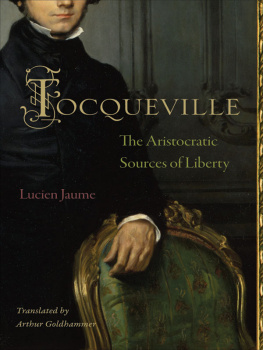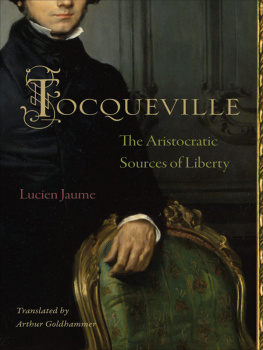Pagebreaks of the print version

America's First Ally
France in the Revolutionary War
NORMAN DESMARAIS
Published in the United States of America and Great Britain in 2019 by
CASEMATE PUBLISHERS
1950 Lawrence Road, Havertown, PA 19083, USA
and
The Old Music Hall, 106108 Cowley Road, Oxford OX4 1JE, UK
Copyright 2019 Norman Desmarais
Hardcover Edition: ISBN 978-1-61200-701-4
Digital Edition: ISBN 978-1-61200-702-1
Kindle Edition: ISBN 978-1-61200-702-1
A CIP record for this book is available from the British Library
All rights reserved. No part of this book may be reproduced or transmitted in any form or by any means, electronic or mechanical including photocopying, recording or by any information storage and retrieval system, without permission from the publisher in writing.
For a complete list of Casemate titles, please contact:
CASEMATE PUBLISHERS (US)
Telephone (610) 853-9131
Fax (610) 853-9146
Email:
www.casematepublishers.com
CASEMATE PUBLISHERS (UK)
Telephone (01865) 241249
Email:
www.casematepublishers.co.uk
Front cover : Top image: Reenactors. (Courtesy of author)
Bottom image: Second battle of Virginia Capes. (Wikimedia/US Navy)
I should be wanting in the feelings of gratitude, did I not mention on this occasion, with the warmest sense of acknowledgment, the very cheerful and able assistance, which I have received in the course of our operation from his Excellency the Count de Rochambeau and all his officers of every rank in their respective capacities. Nothing could equal the zeal of our allies, but the emulating spirit of the American officers, whose ardor would not suffer their exertions to be exceeded.
George Washington to the President of Congress
19 October, 1781
The Writings of George Washington
collected and edited by Worthington Chauncey Ford
(New York: G.P. Putnams Sons, The Knickerbocker Press, 1891),
Vol. IX 178082, p. 387.
Introduction
France and Britain were rivals for domination in Europe and wherever they had colonies throughout the eighteenth century. British North American colonists saw France as a natural ally in this struggle for independence. France influenced the American War of Independence in a variety of ways, including intellectually, financially, and militarily.
The French Enlightenment thinkers, called the philosophes , provided the ideological foundations for both the American and French revolutions. Charles-Louis de Secondat, Baron de La Brde et de Montesquieu (16891755), developed the idea of the separation of powers and the need to divide power among the executive, legislative, and judicial branches of government in his works, particularly The Spirit of the Laws (1748).
Franois-Marie Arouet (16941778), better known by his pen name, Voltaire, used sarcasm and irony to advocate intelligent political authority based on the rule of law. During his entire literary and professional life he advocated freedom of thought in all of its forms and the ability to ensure that social and political organizations do not silence voices, particularly those of dissent. Most of his political views were based on the ideas of John Locke (16321704) and Isaac Newton (16421726/27). He distrusted democracy, which he saw as propagating the idiocy of the masses and was very critical about other peoples ideas. He essentially believed enlightened despotism to be the key to progress and change. Only an enlightened monarch or an enlightened absolutist, advised by philosophers like himself, could bring about change, as it was in the kings interest to improve the power and wealth of his subjects and kingdom. He considered the French bourgeoisie to be too small and ineffective, the aristocracy parasitic and corrupt, the commoners ignorant and superstitious, and the church a static force useful only as a counterbalance since its religious tax, or the tithe, helped to create a strong backing for revolutionaries. Voltaire was a firm advocate of secular rule.
Jean-Jacques Rousseau (171278) was the most celebrated of the French political philosophers. His works, particularly The Social Contract (1762), developed the principles of the general will and the importance of a social contract between people and government.
The increasing absolutism of the French monarchy was an important factor shaping French political philosophy. The role and influence of representative institutions in France were diminishing at a time when the British Parliament was gaining political power and the importance of legislatures was growing in the British North American colonies. While the Americans, and even many Britons, adopted the ideas and concepts that would shape the democratic ideals of the American Revolution, there were few practical outlets for corresponding antimonarchical views in France. This became important as French adherents to the philosophies of Montesquieu and Rousseau, such as Marie-Joseph Paul Yves Roch Gilbert du Motier, Marquis de Lafayette (17571834), and Mathieu Dumas (17531837) traveled to the colonies to fight for democracy.
The British and French were rivals for domination in Europe and around the globe, where the two nations had established colonies throughout the eighteenth century. The Treaty of Paris that ended the Seven Years War (commonly known as the French and Indian War in America) in 1763 marked the end of French territorial ambitions in North America and the emergence of a mainly European foreign policy in regard to Great Britain. France lost Canada, which was officially called the Province of Qubec after 1763. Nearly all of its population of about 85,000 were of French ancestry, except for 2,0003,000 British or American newcomers. Thus, France lost control of North America to the British. This included all the territories explored by the French in the Ohio and Mississippi River valleys. These territories were annexed to Canada, which now extended all the way to Louisiana.
The loss of all their North American territory dismayed and embarrassed the French. They yearned for revenge, but King Louis XV did not want to commit to another war. His successor, King Louis XVI, thought differently and began preparing the country for war. While some colonists saw the French as a natural ally in their struggle against Great Britain, most were distrustful of the French because the colonists were British subjects and shared Britains hatred for the French. The English and Americans had been taught to despise the government, religion, and culture of France in the years preceding the American War of Independence. They had been enemies during the French and Indian conflict.
The French were predominantly Catholic. Many colonists came to America in search of religious freedom and, particularly, to escape the Inquisition run by the Catholic Church. Consequently, there was a strong distrust and hatred of Catholicism in the colonies in the eighteenth century. Yet, despite the continuing rhetoric of hostility, the Americans continued to conduct clandestine, illegal trade with France and the French West Indies.
The trade laws of the period were based on an economic system known as mercantilism, which exploited the colonies for the benefit of the mother country. France reasoned that any steps that loosened the bonds between the colonies and the mother country would naturally diminish British power. Adam Smith (172390), in his famous treatise, An Inquiry into the Nature and Causes of the Wealth of Nations , opposed mercantilism and advocated free trade.










